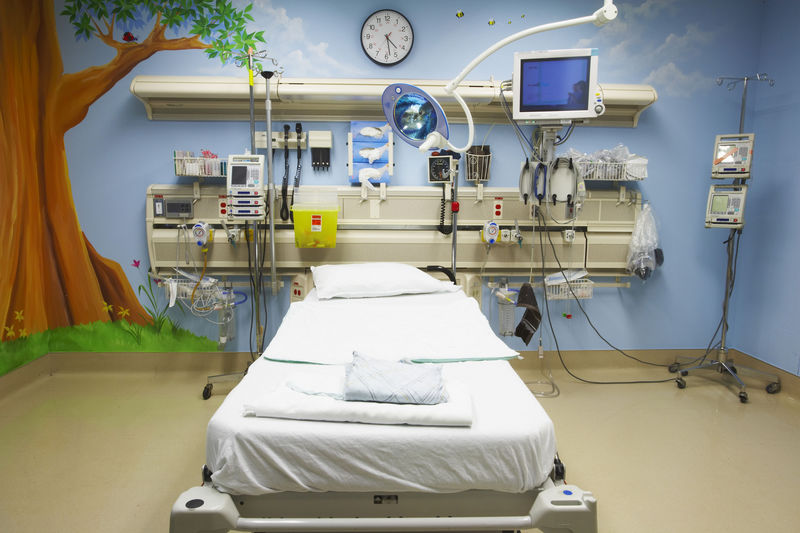
MONDAY, July 11 (HealthDay News) — The dog days of summer are a perfect time for hitting the beach. But a summer visit to your local teaching hospital?
Perhaps not so much, caution researchers who report that such institutions tend to suffer a dip in efficiency and a spike in patient deaths whenever they undergo the massive medical resident turnover that typically ensues every July.
The observation stems from an analysis of 39 studies that looked at a phenomenon commonly known as the “July Effect.” The term refers to the specific time of year when experienced medical residents in training depart their assigned teaching hospital, to be replaced by fresh-faced but less experienced interns.
“Our study is a signal that there is increased risk at this time,” noted study author Dr. John Q. Young, associate program director of the residency training program within the department of psychiatry at the University of California, San Francisco’s School of Medicine. “That’s the bottom line, and it’s something that patients should be aware of.”
“However, at the same time, patients should not delay care because of this concern,” Young stressed. “They should always seek the care they need whenever they need it. But I would say that this concern makes it important that patients try to include a family member or a friend in the process. You should bring them with you to the hospital, so they can advocate for you, and not hesitate to ask to speak to the experienced attending physician that will always be there overseeing the team.”
Young and his colleagues report their findings in the July 12 online edition of the Annals of Internal Medicine.
At issue, say the authors, is a longstanding concern over the summer season disruption to a teaching hospital’s medical effectiveness that can occur when large groups of well-experienced trainees exit a facility just as “newbie” medical trainees are pouring in. Such changeovers involve about 100,000 medical staff in the United States and 32,000 in Europe each year, Young and his team noted.
Concerns revolve around the new staff’s general unfamiliarity with the intricate workings of a complex hospital environment, as well as their relative lack of experience that may leave them unprepared for the demands of a high-paced clinical setting.
Analyzing the possible consequences to patient health, the study team sifted through the results of 39 English-language studies (mostly American) that were conducted between 1989 and 2010.
The team focused on the July rate of fatalities, medical complications and medical errors at teaching hospitals, as well as overall hospital efficiency variables such as patient hospitalization times, medical costs and operating room time, compared to other months.
The results: Patient fatality rates tended to go up during July staff changeovers, while care efficiency went down. And that, the research team concluded, means that the “July Effect” is real.
However, differences in the way the 39 studies were conducted made it impossible for the authors to determine the exact causes for such trends, and the degree to which patient care might be compromised. In addition, they could not pinpoint which types of teaching hospitals are the most vulnerable to staff turnover.
“There really needs to be more and better studies of this issue — ones that control for the important variables and factors involved, and that look at things like morbidity, surgical complications, infections, that sort of thing,” Young said.
“But I would say that hospitals themselves already take this problem quite seriously,” Young added, “and many take specific steps to deal with the risks. [These include] testing the competency and clinical skills of new residents when they take up new positions, and making sure that the level of responsibility they are given is appropriate. Many have made an effort to enhance supervision, control the growth of caseloads new residents are assigned, and provide better orientation. So, attention is being paid.”
Experts also suggests preventing resident fatigue and staggering start schedules for trainees, so the most experienced residents don’t all leave at once.
On his part, Dr. David Dunkin, an assistant professor of pediatrics in the division of pediatric gastroenterology at the Mount Sinai School of Medicine in New York City, concurred that teaching hospitals are aware of the “July Effect” and are taking practical steps to minimize associated risks.
“This is a real issue,” said Dunkin. “But I don’t think that patients should be nervous about this.”
“I say that because there are a lot of layers in an academic situation,” he explained. “Yes, in July experienced trainees go and less experienced trainees come. But the hospital faculty doesn’t turn over. And there are constant senior levels of supervision that remain in place. And that means that the July turnover is counterbalanced by an increased vigilance, in which senior level people are watching the new people very closely.”
That said, Dunkin expanded on Young’s advice as to steps patients can take to improve their hospital experience, regardless of when they might visit a teaching hospital.
“Yes, patients should bring someone with them if they can,” he said. “And also be prepared to bring in with them anything that will make it easier to make sure that there will be no misunderstandings concerning their medical history. A copy of any records, if they have had medical illnesses. Or even a letter from their primary care physician or specialist stating what their medical issues are and what medications they are on. That kind of succinct summary reduces the chance of an error being made year-round.”
More information
For more on teaching hospitals, visit the Association of American Medical Colleges.

